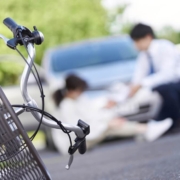Dog Bite Dangers: What to Do If Your Child is Attacked by a Dog
A dog bite can be one of the most traumatizing experiences a child ever goes through. If you talk to most adults who are terrified of dogs, you’ll find that for most of them, a dog bite early in life is the root of their fear. Not only could your child be left with emotional trauma, they may also struggle with physical injuries and disfigurement. That’s why it’s crucial to hold the negligent party accountable for their actions.
If your little one has been bitten by a dog, don’t wait a moment later to get the legal advice you deserve. Call McPhillips Shinbaum at 334-262-1911 to set up a consultation now.
Immediate Steps to Take After a Dog Bite
When a dog bite occurs, your immediate priority is to protect your child. We recommend:
- Separating the dog and child immediately. Even if the dog bite appeared to be an isolated one-off incident, you never know when a dog who has acted aggressively will lash out again. Remove your child from the dog’s presence immediately, and if the attack is ongoing, put as much distance between the dog and you as possible.
- Checking for severe injuries. Look for anything that could be fatal or leave your child with permanent injuries. That is your priority as you move on to treating the wounds.
- Controlling the bleeding and treating the wound. It’s crucial to stop the bleeding as soon as possible. Use a clean cloth to apply pressure and staunch the flow of blood. Depending on where the bite is, you may also want to elevate it. Clean the wound and cover it—from there, it’s up to medical professionals.
- Identifying the dog and owner. Take a mental photograph of the dog in question. Try to remember its size, perhaps by comparing it to an object near it like a fire hydrant or bicycle. Remember its general pattern and coloring, and if you know dogs, get an idea of the breed. Ideally, you’ll get the owner’s name and contact information. You may also find it helpful to photograph the dog and owner in case they attempt to flee.
Medical Care and Documentation
Dog bites can be incredibly dangerous, especially to young children with still-developing immune systems. You must go to the emergency room or an urgent care center to seek further treatment.
While your child is receiving treatment, take advantage of the downtime to document the incident. Write down everything you remember about the bite, the dog, and its owner. Take photos of the wound before and after treatment—these photos could be important in your eventual personal injury claim. Follow the doctor’s instructions to the letter. Left untreated or poorly treated, a dog bite can lead to a severe infection.
The Legal Aspects of a Dog Bite in Alabama
Dog bites are fairly legally complex in Alabama. Alabama does have a “one bite” law, although this is often misunderstood. The dog doesn’t get one free bite before the owner is liable for damages. Even if they did not know the dog was dangerous, they can still be forced to pay actual economic damages to the victim.
However, if the owner had reason to know the dog was aggressive, they could be forced to pay additional damages. There are many ways to prove that a dog is aggressive and that the owner knew it. Perhaps the dog has bitten someone in the past, and your attorney can prove it by pulling animal control records. Maybe the dog requires sedation medication every time they go to the vet because they are considered a danger otherwise. Perhaps the dog was adopted and was listed on the shelter’s website as aggressive or unpredictable.
This is a nuanced area of law, and what you can recover depends largely on the strength of your claim and your attorney’s experience. That’s why it’s important to work with an experienced dog bite attorney.
Start Your Dog Bite Claim with McPhillips Shinbaum
We know that a dog bite can be devastating for you and your child. We’re determined to hold the negligent owner responsible—don’t take this on alone. Set up a consultation with our team now by calling us at 334-262-1911 or contacting us online.













 Why Are Pedestrian Accidents Increasing in Alabama?
Why Are Pedestrian Accidents Increasing in Alabama?